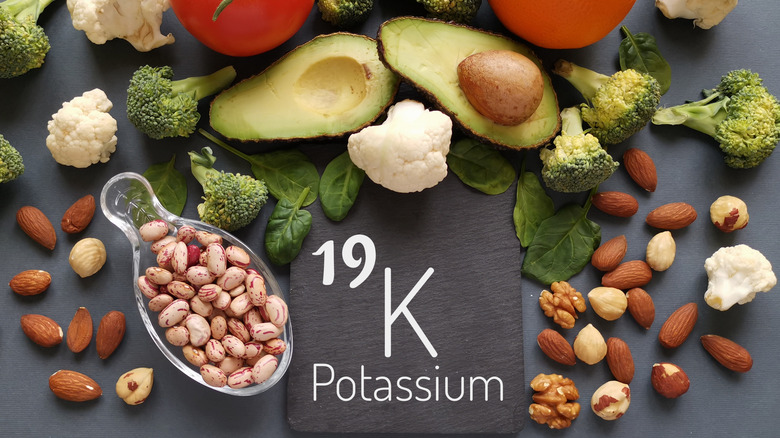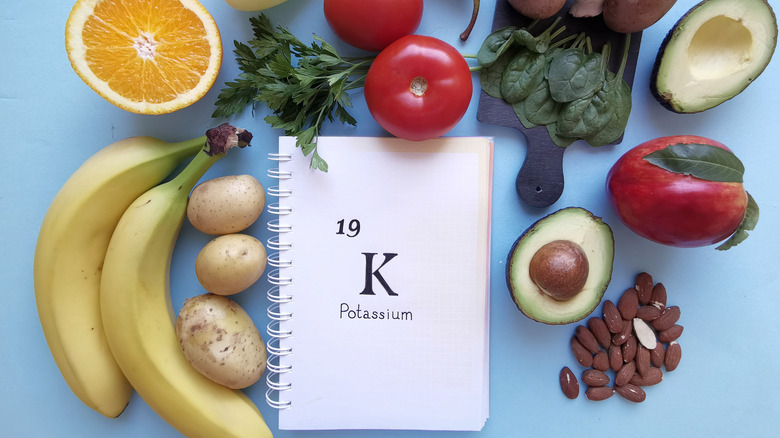This Is How Much Potassium You Should Get Every Day
Potassium is an integral mineral to our body's function, but how do you know if you're getting enough? Known as an electrolyte, potassium actually sustains a small electrical charge that helps cells and nerves function (via Harvard T.H. Chan School of Public Health). It works to maintain fluid levels inside of cells and is closely related to sodium, which maintains fluid levels outside of cells. Potassium and sodium work together, with high levels of potassium relaxing the blood vessels and flushing out sodium. Therefore, we need more potassium than sodium.
Since potassium is one of the top three minerals in the body, it's incredibly important that we get enough each day (via Healthline). Unfortunately, most Americans consume too much sodium and not enough potassium, regardless of sociodemographic or health characteristics, according to a 2012 study published in the American Journal of Clinical Nutrition. This greatly increases the risk of hypertension, cardiovascular disease, and other health complications.
How to get enough potassium
The amount of potassium you should get every day depends on factors like age and sex. For adult females, the recommended amount is 2,600 milligrams daily (via the National Institutes of Health). This amount rises to 3,400 milligrams for adult males. Female children between the ages of 9-18 need approximately 2,300 milligrams per day, while male children aged 9-18 need between 2,500-3,000 milligrams per day. Infants under the age of 1 need 400-860 milligrams daily. People who are pregnant or breastfeeding need even more. However, some sources like the U.S. Department of Agriculture recommend even higher daily amounts.
Luckily, potassium is plentiful in many whole, non-processed foods (via Healthline). Fresh fruits and vegetables, like bananas, apricots, squash, leafy greens, and mushrooms, are a good source of potassium. For example, 3.5 ounces of cooked beet greens can provide you with a whopping 909 milligrams of potassium. Other good sources are beans, yogurt, fish, and tomato-based products (via the American Academy of Family Physicians). Coconut water is also a great option and alternative to sugary sports drinks, with as much potassium as 4 bananas and 16 times the amount in Gatorade (via WebMD).
Talk to your healthcare provider about whether or not you are getting enough potassium in your diet.


